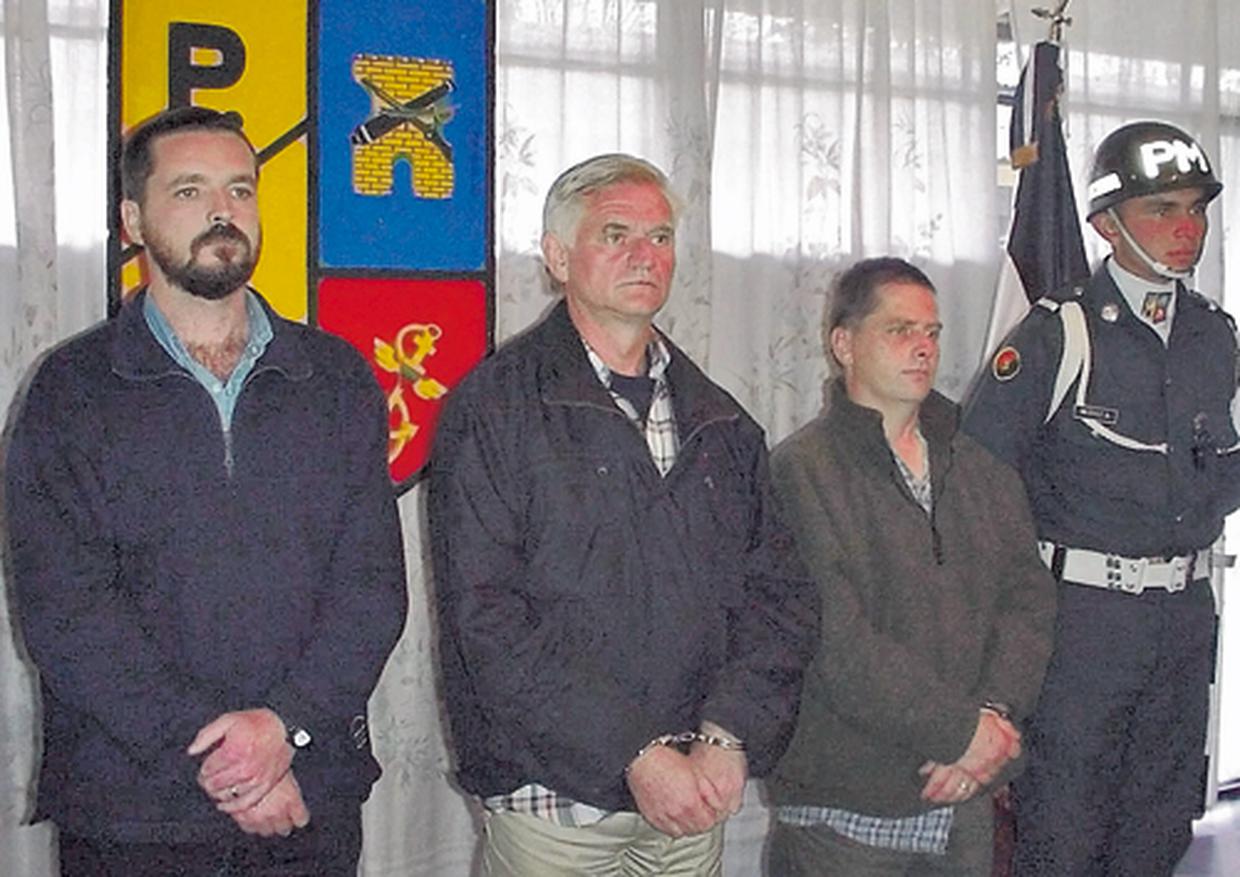Americas
The Colombia Three

On the morning of August 11th 2001, news began to filter through that three Irishmen had been arrested at Bogota international airport in Colombia.
Another case of drug smugglers caught trying to make some quick money for a few days’ work?
As more details emerged, it was clear this was a much more complicated case that just smuggling. Jim Monaghan, Martin McCauley and Niall Connolly were arrested for travelling under different names on false passports.
More serious charges were to follow with the men accused of training FARC guerrillas in the rural south of the country.
FARC stands for the Revolutionary Armed Forces of Colombia and was a Marxist-Leninist guerrilla organisation whose stated aim was to represent the interests of the rural people of Colombia.
Formed in 1964, they were in conflict with the government for over 50 years until a peace deal was agreed in 2016.
So how do three Irishmen end up being charged for training a guerrilla organisation deep in the jungle of Colombia?
The men’s real names and backgrounds provide an explanation of what was really going on. All three men were members of the provisional IRA, with Jim Monaghan and Martin McCauley having been active during the troubles in Northern Ireland.
Monaghan was nicknamed Mortar and developed the first mortars used by the IRA in 1973. He was also involved in the development of remote-controlled devices for detonation of landmines and bombs, giving the IRA more flexibility in their bombing campaign.
Martin McCauley was in the IRA engineering section and, as well as being shot by RUC while he was unarmed in 1982, had previously received a two year suspended sentence for weapons possession.
Niall Connolly was the youngest of the three and the only fluent Spanish speaker in the group. He grew up in Dublin and later attended Trinity College Dublin. At the time of his arrest he had been working in Latin America for a number of years. By 2001 he was a resident of Cuba and was known as Sinn Fein’s man there.
At the turn of the century the conflict in Colombia had been dragging on for decades and the FARC leaders realised they needed to modernise their tactics if they were to continue to realise their vision to expand FARC influence into the cities.
They controlled about one third of the country at this stage, but most of it was in rural areas in the south. They had been using basic mortars and rockets but required greater expertise in making more effective weapons, and that is where the three travelling under false passports came in.
Monaghan instructed them how to make more effective mortars and landmines while McCauley taught them how to operate the upgraded equipment they would be using.
Connolly acted as a link between Sinn Fein and the FARC guerrillas and had the obvious advantage of speaking fluent Spanish in predominantly Spanish speaking Colombia.
The three had arrived in Colombia in late June 2001 and spent five weeks travelling in the rural south of the country.
After initially being charged with travelling on false passports, they were also charged with training FARC guerrillas in bomb making.
Delays in charging the trio ensued but eventually they were found guilty of the passport offences but not guilty of the more serious charges related to training the guerrillas. The sentences handed down differed in length up to 44 months.
An appeal was launched with the three released while they awaited retrial. One of the conditions of release was they were to remain in Colombia.
The appeal saw matters get worse for the men as they were found guilty of training FARC guerrillas and sentenced to 17 years in prison in December 2004.
Possibly knowing what was coming, the three had fled the country and were back in Ireland by 2005. It is still unknown how they made it back.
After Garda questioning, no charges were brought and as there was no extradition agreement between Ireland and Colombia, they were not sent back to serve their sentences.
In 2014 Martin McCauley appealed a firearms offence in a Belfast court but did not attend in person, fearing being sent back to Colombia as the UK has an extradition agreement in place.
Monaghan spoke about the groups return in 2015 to the newspaper An Phoblacht saying The story of that journey cannot be told for many years because that might endanger many good people. There are intelligence services who would dearly love to know how it was done.
In April 2020, a special peace tribunal in Colombia granted the three men amnesty from the charges in what would have been the final year of their sentence.
Although Jim Monaghan claimed to be in Colombia to assist the peace process between FARC and the government, this seems like a far fetched explanation given the fact the guerrillas were using mortars very similar in design to ones used by the IRA.
The whole saga brought widespread embarrassment to Sinn Fein, who had tried to distance themselves from what happened but the links between the three and Sinn Fein could not be denied.
Though no lasting damage was done to the peace process in Northern Ireland, it was made clear by the governments of Ireland, Britain and America that this type of incident could not happen again.
